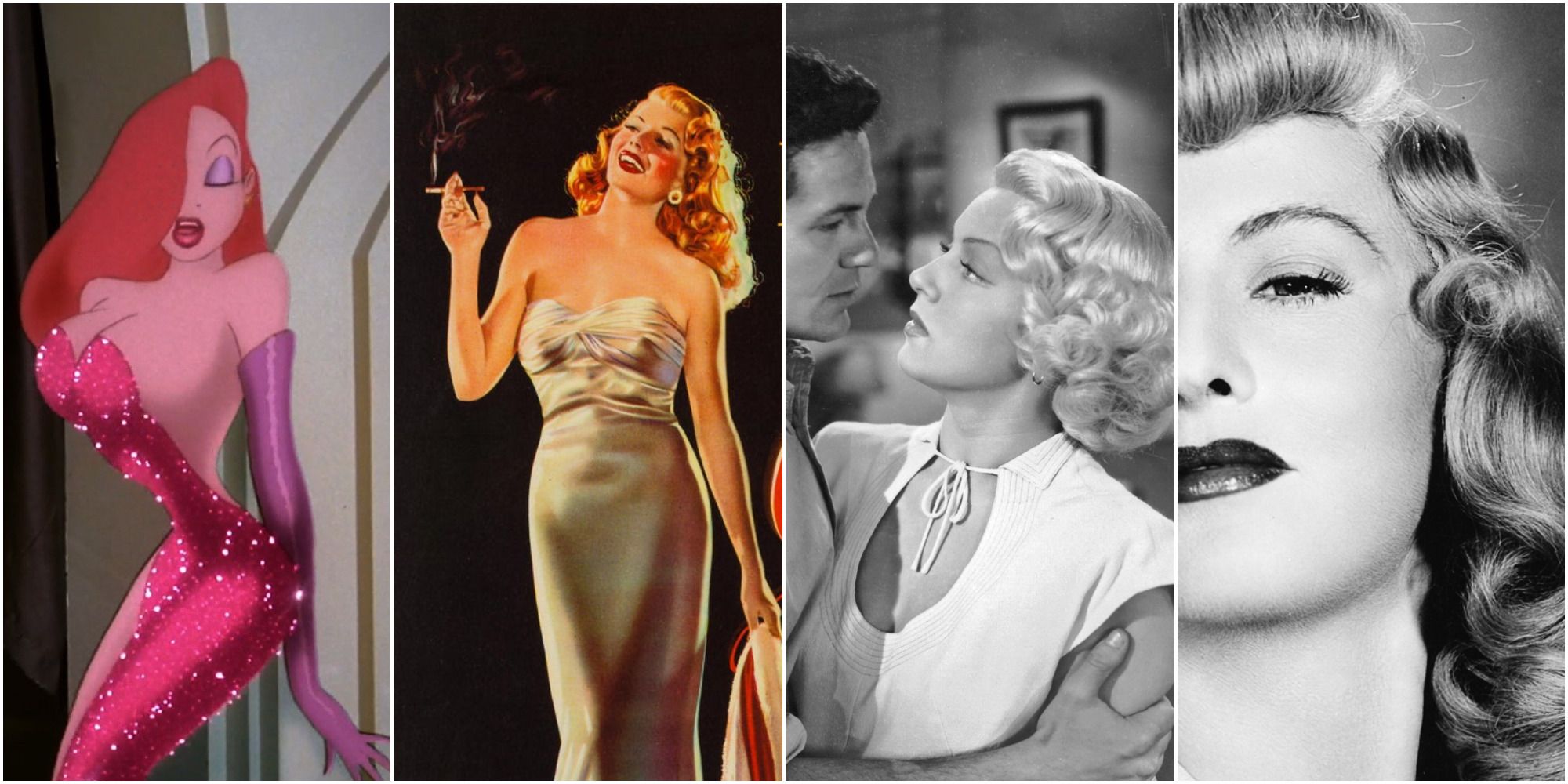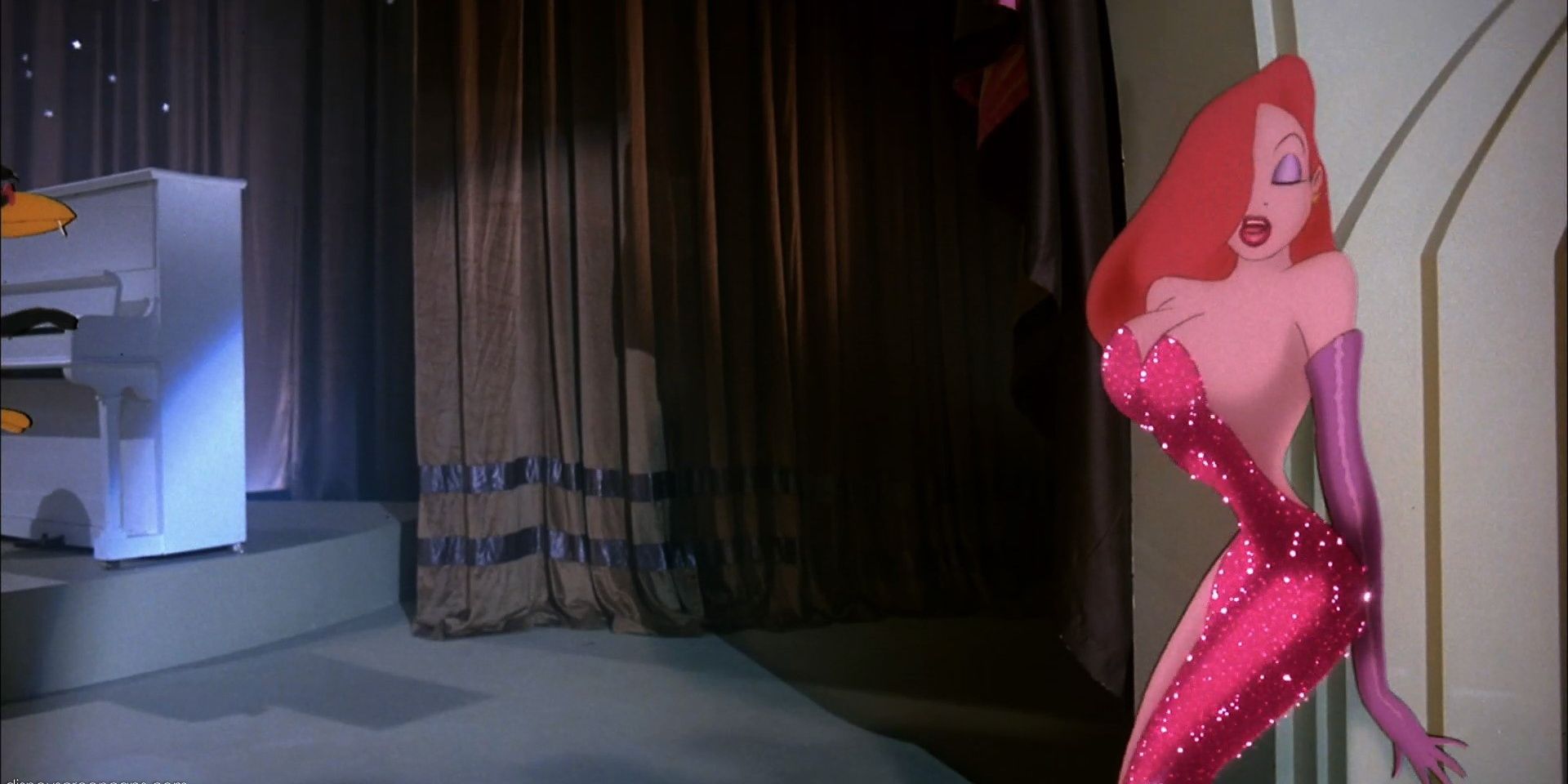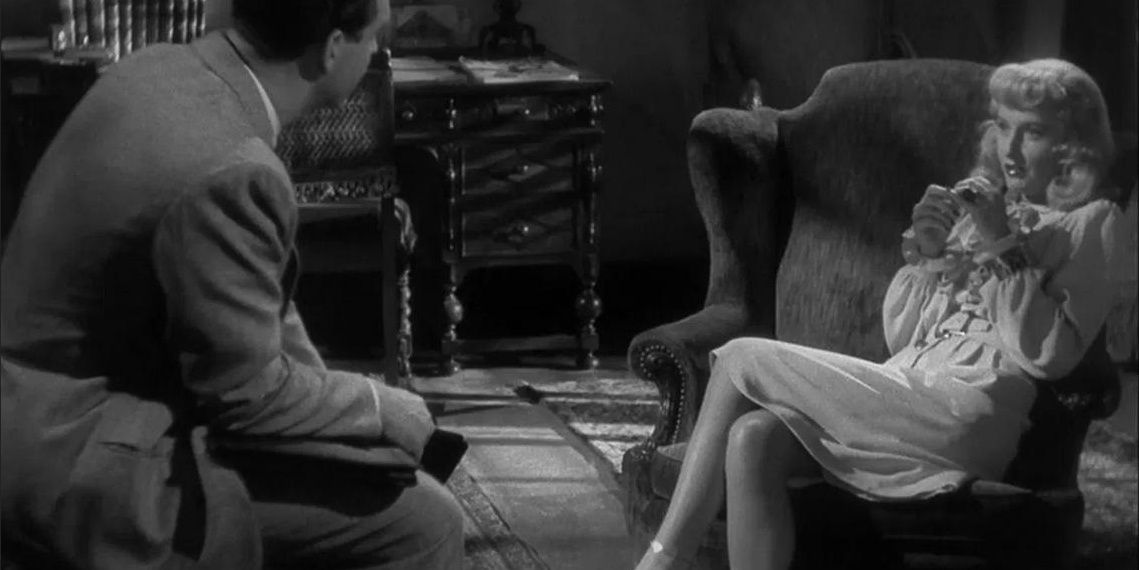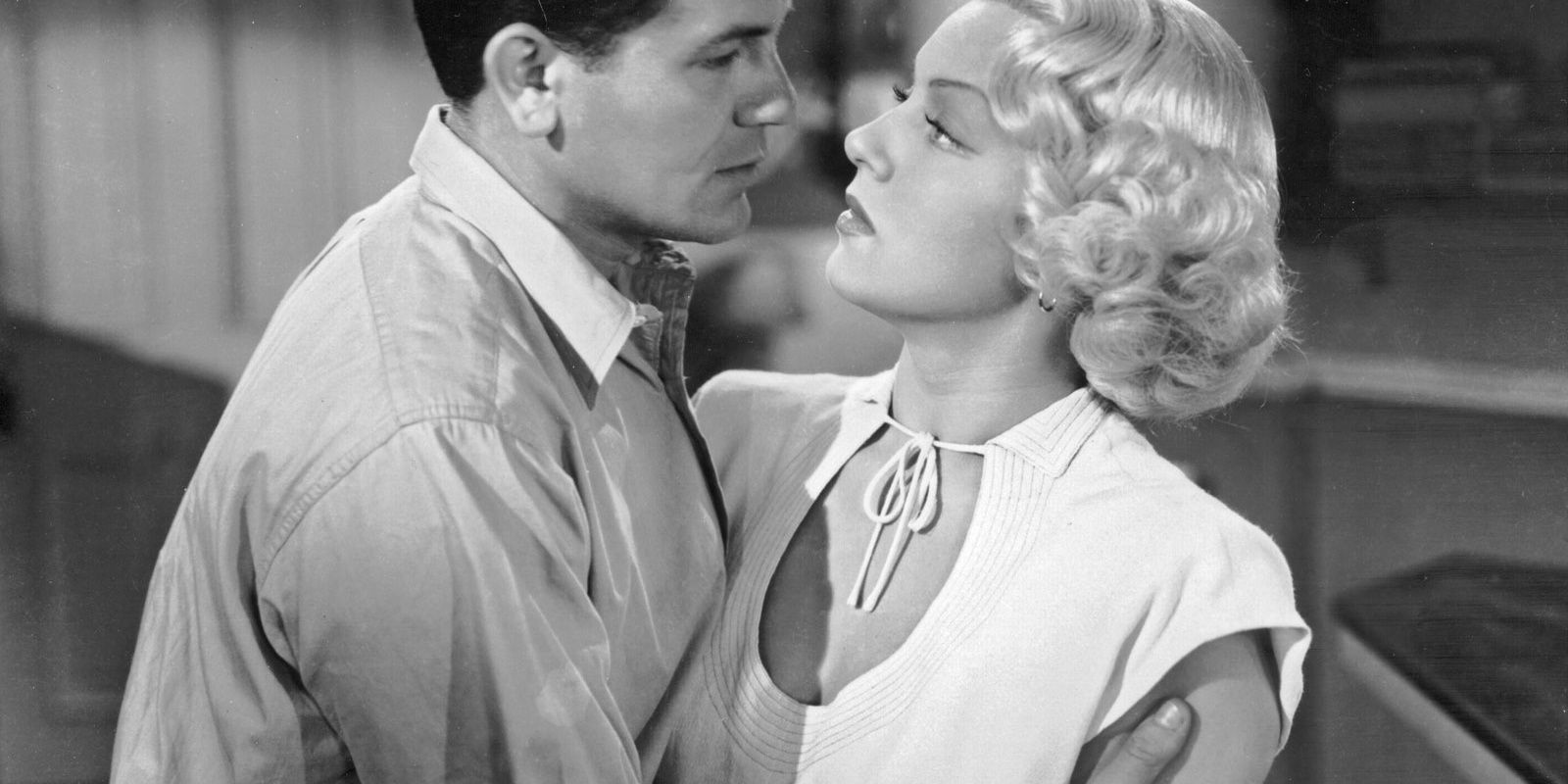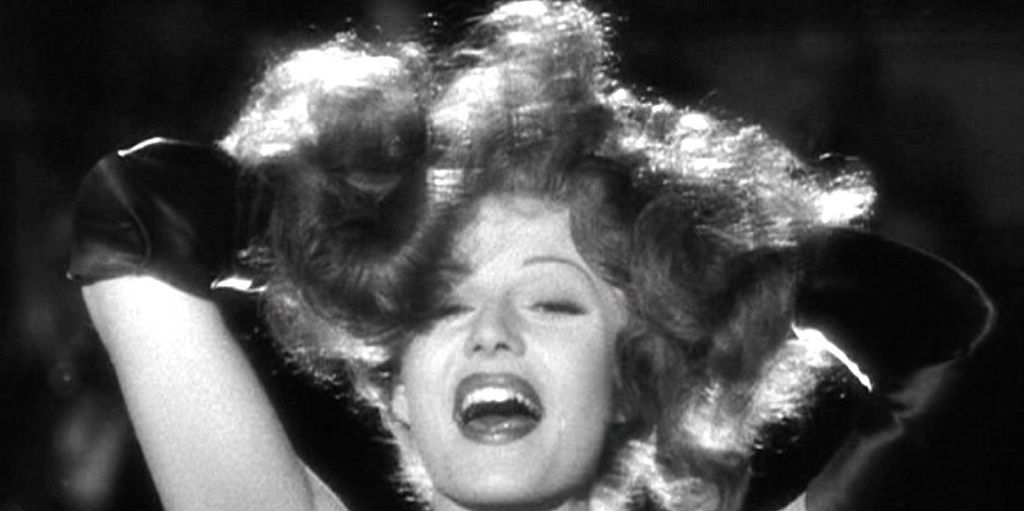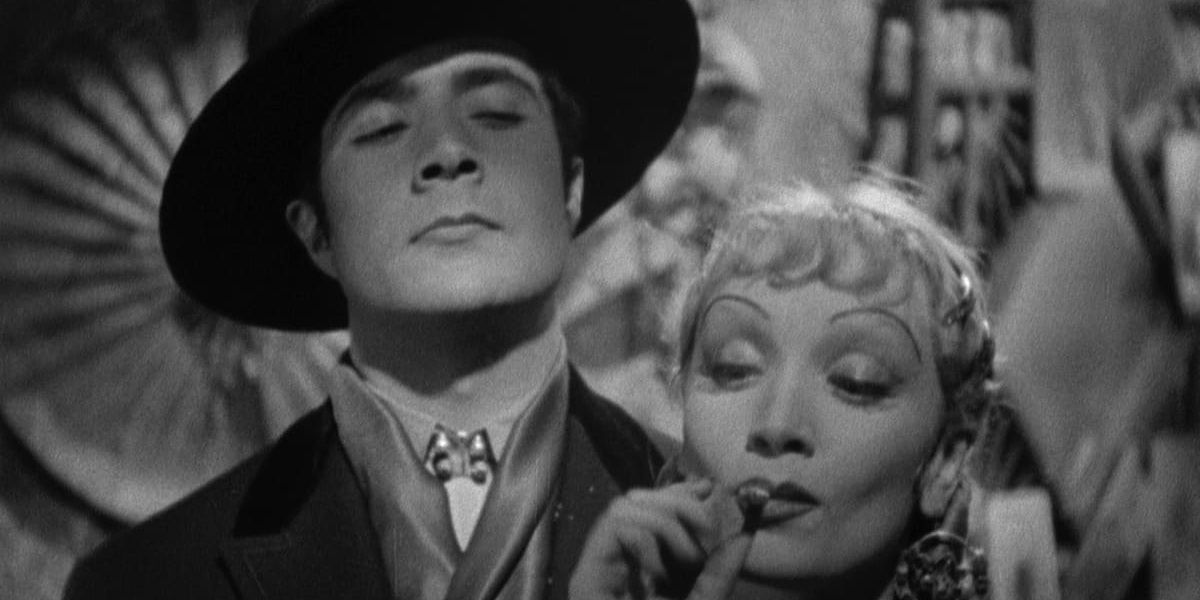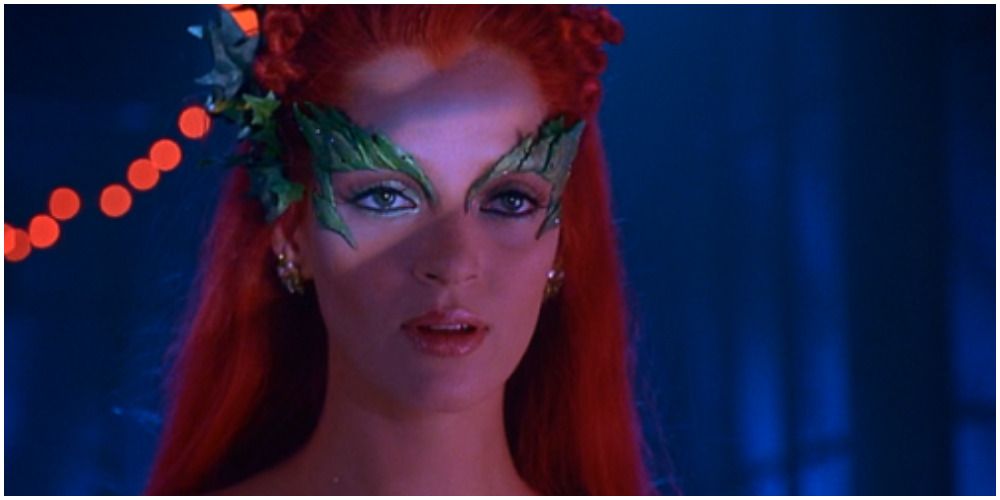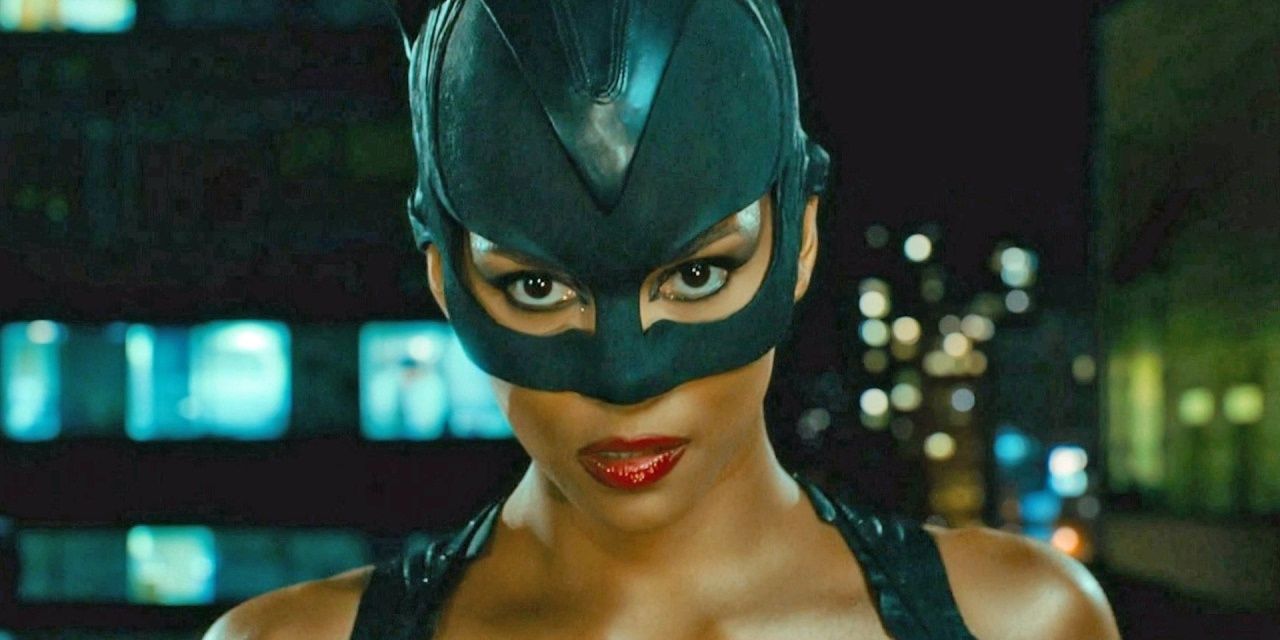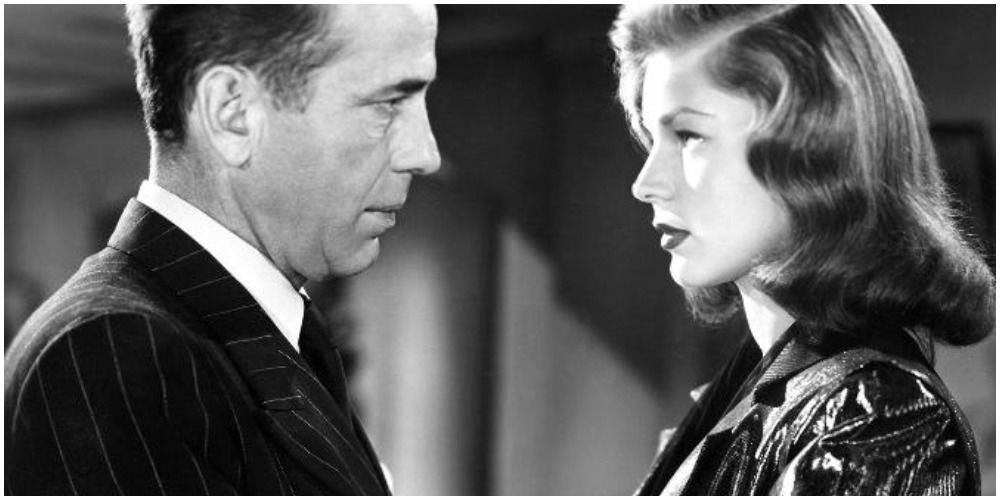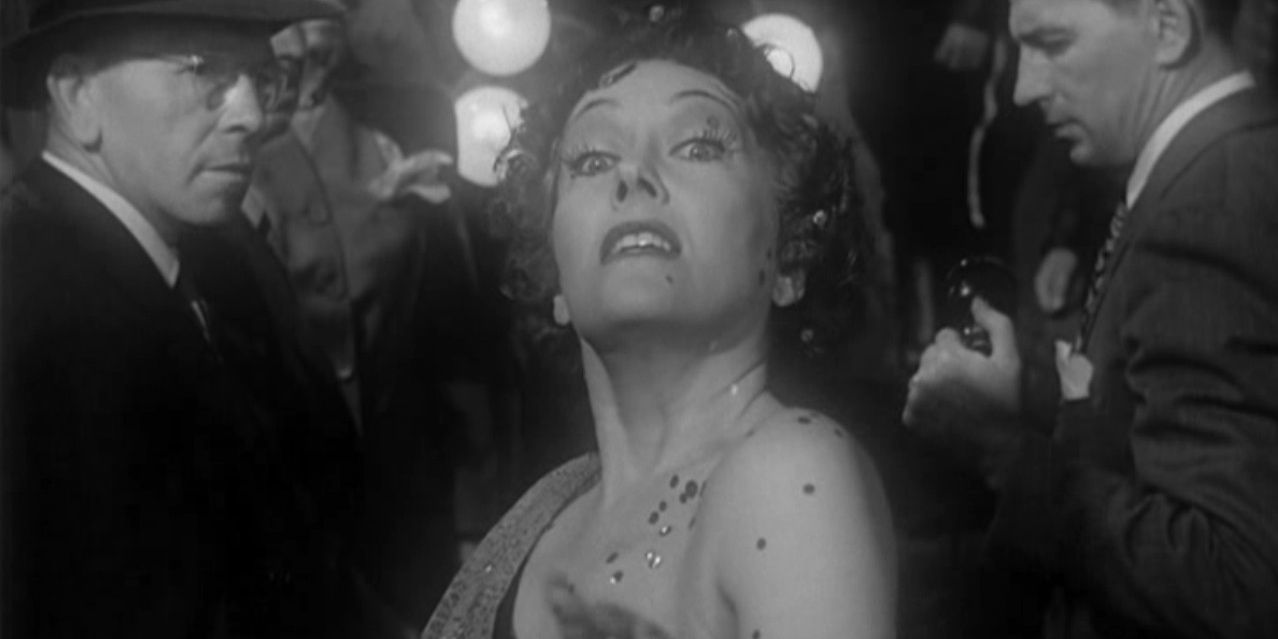Society has a cultural obsession with the femme fatale. Although humans have spent centuries creating weapons, societies, laws, culture, and morality for its betterment, the femme fatale is capable of ignoring all these rules for her own selfish interest. With just the hint of a promise of her love, the femme fatale can destroy families, businesses, societies, and every institution that man holds dear.
Also known as other names, like the succubus, the black widow, Venus, Mami Water, and more, the femme fatale appears in many cultures, illuminating men's obsession, fear and infatuation with her. She represents transcendence from earthly pain into unreal pleasure: she is Hell disguised as Heaven - and these are the most iconic in film.
Jessica Rabbit
Jessica Rabbit was drawn to exaggerated proportions to really drive home the idea that she was the ultimate femme fatale. But as she tells Detective Valiant, "I'm not bad. I'm just drawn this way."
Jessica was voiced by Kathleen Turner, and her singing voice voiced by Ay Irving. Her sultry, seductive voice was not the only noticeable thing about Jessica. Like Lauren Bacall, Jessica Rabbit has her hair distinctively fall over one eye to represent mystery, intrigue, and possible dark secrets. And like any femme fatale, Jessica finds herself seducing men for no other reason than because it seems to be in her innate nature. Of course, she breaks the convention when it is revealed that she is a loyal housewife to her husband, Roger Rabbit.
Phyllis Dietrichson, Double Indemnity
The most potent femme fatale in cultural history, Phyllis Dietrichson is a woman who would murder anyone who stands in the way of her financial wealth. The femme fatale, a visual reconstruction of men's fear of female empowerment and independence, is often portrayed as loving money. While striving for wealth in men is often coded as a positive trait, in the femme fatale, this is a negative trait, hence why her route towards financial independence is always lazy and crime-laden.
Phyllis convinces Walter to kill her husband for her for a big insurance payout. Neff knew from the moment he laid eyes on her legs, that he would be unable to say no to Phyllis.
Cora Smith, The Postman Always Rings Twice
Film noir's most beautiful, most petulant, and most feisty femme fatale, Cora Smith is a femme fatale with a tragic past. Like Phyllis Dietrichson, Cora is trapped in a country with poor women's rights. Unable to get a good job, Cora is forced to marry a wealthy man to have a chance at a good life. Old enough to be her father, she does not love him. When a stranger, Frank Chambers, rolls into town looking for work in the diner/service station owned by her husband, Cora knows what effect she has on him.
Although she initially refuses his advances, the two soon begin a passionate love affair, and Cora plants the idea in Frank's head that they would be better off with her husband dead, so she can inherit the diner and make something of themselves. Still, when Cora gets her wish, Frank begins to hate her newfound financial independence.
Gilda
The most childlike femme fatale, Gilda is clearly a masculine fear-turned-daydream. With her bouncy red curls, her joie de vivre, and her long gloves which she slowly peels off while on stage, Gilda enthralls men with her presence.
In Gilda, Johnny Farrell accidentally reunites with his former lover, Gilda, after he is hired to manage her husband's casino. Set in Buenos Aires, there is an exotic feel to the movie that clings to Gilda, played by Hayworth, who is of Spanish descent. Gilda is one of the few femme fatales who is actually beaten on screen. Most men in film noir punish their lovers for their beauty by shooting or killing them.
Concha Perez, The Devil Is a Woman
In another movie where the woman is beaten up by her lover for being too beautiful, The Devil Is A Woman chronicles the tales of seduction of local Spanish woman, Concha Perez. The movie is distinct, because it overtly features men admitting their powerlessness against the femme fatale. Her former lover, Captain Don Pasqual warns Concha's newest suitor, Antonio Garvan, to stay away from Concha. Pasqual tells Antonio of how he met Concha, and how this beautiful Spanish woman drove him crazy with her seductive manipulation, that he had to resign in public shame.
Played by the handsome German actress, Marlene Dietrich, Concha Perez is an exotic tale of the Spanish femme fatale who played with men for her pleasure, and for money.
Julia, 1984
In a dystopian world of totalitarian control, thought control, terrible living standards, and extreme loneliness, Winston Smith lives a dreary life, his heart wanting to rebel against the state. As an act of rebellion, Winston begins an affair with Julia, who seduces him by writing him a note with the words, "I love you". Julia is the one who enables Winston to protest against the state, as sex is banned apart from for reproductive purposes.
Julia is a dystopian portrayal of Eve, a woman who can make a man defy laws and orders from above using her feminine wiles. Indeed, the myth of Eve is the first femme fatale, a woman who dooms the entirety of mankind from beginning to end, by seducing her husband into disobeying God.
Poison Ivy, Batman & Robin
As is canon in comic books, Poison Ivy, like many female comic book villains, is a femme fatale. Still a heavily androcentric medium, comic books have not been able to move from the simplistic, damaging stereotype that all villainous women are sexy. The trope's sexism can be easily spotted when male villains are contrasted with female villains. Male villains are permitted to be complex characters who are not defined by their attractiveness. This is not permitted for Poison Ivy whose M.O. is to use her lips to turn good heroes into villains.
Catwoman
Scantily-clad, masked up and a lone ranger, is Catwoman good? Is she bad? Catwoman plays by no one's rules. She lives and works for herself. An independent woman who refuses both identities of hero and villain, Catwoman in most movie representations is a combination of good girl and bad girl that makes her a femme fatale. Always in black leather, an agile gymnast, and a motorcycle-head, Catwoman is a dangerous woman who can make even the most intelligent man fall. It is no wonder that Batman is in love with her.
Vivian Sternwood, The Big Sleep
Lauren Bacall was so entrancing in The Big Sleep, that Humphrey Bogart fell in love with and married her. With a voice like Kathleen Turner, and a seductive aura of confidence like Barbara Stanwyck, Vivian Sternwood was a different kind of femme fatale, because she was never punished by a man, neither was she after money. The daughter of a wealthy General, Detective Philip Marlowe must use the help of Sternwood's wit and intelligence to solve the case. It is clear that Marlowe finally met his match when he met Vivian - both onscreen, and offscreen.
Norma Desmond, Sunset Boulevard
Sunset Boulevard poses the question, "What happens when a femme fatale is no longer young?" Director and co-writer, Billy Wilder, questions if an aging woman can still be seductive enough to ruin a man's life. Essentially, the question is still rooted in misogyny and a patriarchal understanding of femalehood. Psychoanalytically, Sunset Boulevard can be understood as a male nightmare about the power of older women. As a result, Norma Desmond is locked away at the end of the movie, mirroring how she was boxed out of Hollywood for aging.

